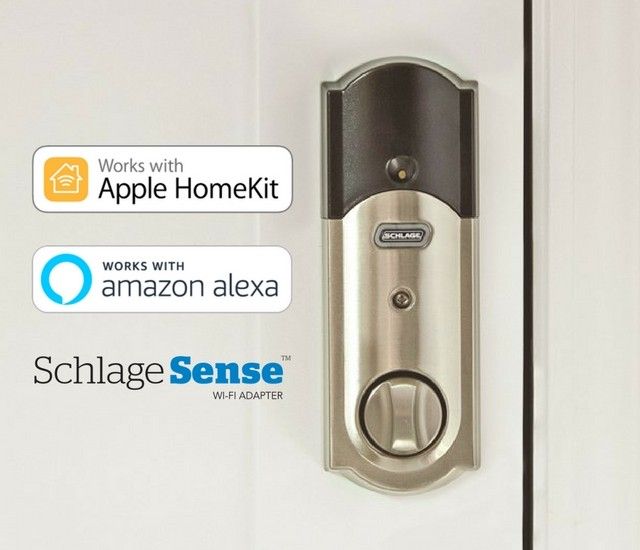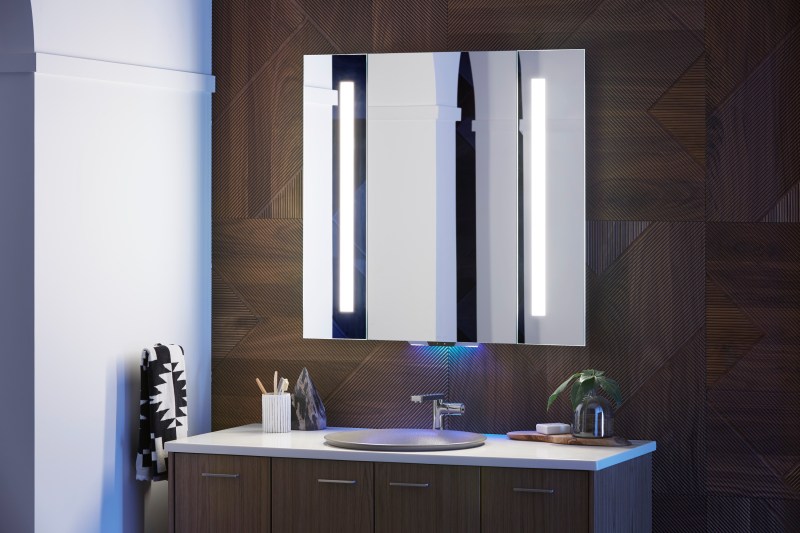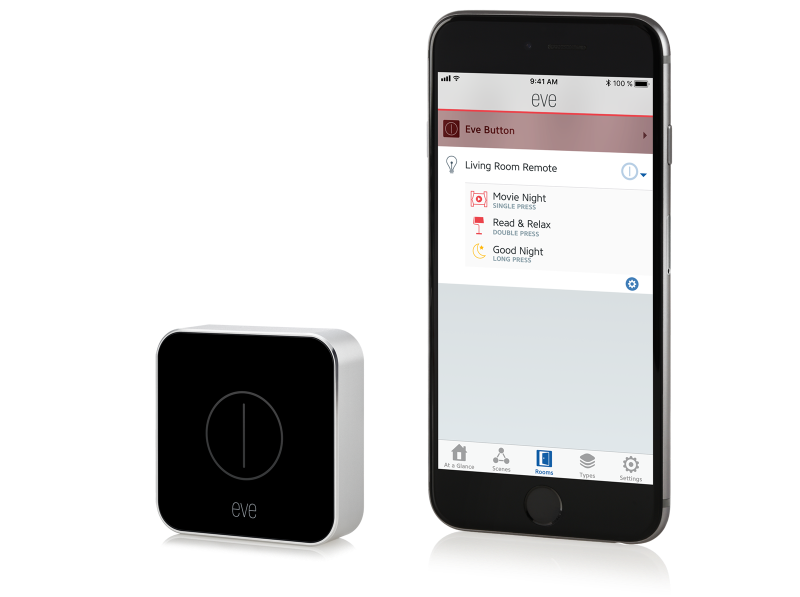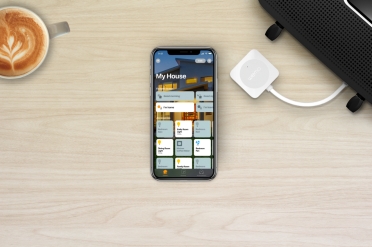testsetset
After a holiday season that saw HomeKit outed as insecure while Amazon’s Echo and Google’s Home smart speakers grabbed more headlines, CES this year is hosting a number of Apple HomeKit smart home accessories with an unexpected new feature: support for Amazon’s Alexa and Google Assistant.

Above: Schlage Sense Smart Deadbolt
One example: smart door locks. In October 2015, Schlage debuted its Sense Smart Deadbolt as an Apple HomeKit accessory. This year, the company came to CES with a different message — Sense gained support for Alexa ahead of the holidays, and will add Google Assistant integration in early Q1 2018. Another smart lock, Array from Brinks, will launch (after extended engineering delays) with Amazon Alexa support first, adding HomeKit and Assistant support later.
In 2017, we increased our capabilities with @amazonecho to include routines & lighting groups, making it even easier to control the lights with just your voice. Visit #booth41137 at #CES2018 to get a first look. pic.twitter.com/YTb0XE4XbO
— Lutron Electronics (@Lutron) January 4, 2018
Lutron is another example. This established smart home accessory maker was one of the first to ship HomeKit accessories in June 2015, and even developed an Apple Watch app. At CES this year, however, Lutron has focused on touting its support for Amazon’s Echo, the Amazon Alexa-integrated Sonos One, and its “alliance with Nest” to integrate its Caséta Wireless system’s controls with Nest’s cameras and security products.
June 5th: The AI Audit in NYC
Join us next week in NYC to engage with top executive leaders, delving into strategies for auditing AI models to ensure fairness, optimal performance, and ethical compliance across diverse organizations. Secure your attendance for this exclusive invite-only event.

Above: An illustration shows Kohler’s new Verdera Alexa-enabled mirror.
To whatever extent HomeKit looked like it might become the clear market leader, the shine’s off at this point, often in favor of integrating Alexa. Some companies, including Kohler, have decided to bring smart home accessories to market with Alexa built in as a major selling point, albeit with the promise of some support for HomeKit, Google Assistant, and Microsoft Cortana.

Above: Eve Button, a wireless HomeKit remote control
On the other hand, stalwart Apple accessory maker Elgato has opted to keep its Eve series of smart home accessories HomeKit-exclusive. Elgato is using CES to reveal new products including the second-generation Eve Room — a $100 air quality, temperature, and humidity monitor with an E Ink screen, planned for March — and a $50 HomeKit remote control called Eve Button, coming later this month. The latter accessory lets you toggle between three different HomeKit-powered room settings without the need for an iOS device as a controller, though an Apple-developed HomeKit hub is still required.

Above: Wemo Bridge
And after waffling on supporting HomeKit, another longtime Apple partner — Belkin — is finally throwing a bone to HomeKit users. Belkin developed a lineup of Wemo smart home accessories, leaving out HomeKit support, and publicly said that it was canceling plans to make Wemo work with HomeKit. In a reversal, it later announced Wemo Bridge, a secure mini router that let HomeKit control Wemo products, but missed its fall 2017 ship date. The finished accessory showed up at CES Unveiled last night with a $40 price tag, and will ship later this week. Meanwhile, recent Wemo accessories such as the Wi-Fi Smart Dimmer and Insight Smart Plug were built with integrated Alexa and Assistant support, and only require Wemo Bridge for connecting to HomeKit.
In recent years, supporting Apple-exclusive accessory standards has proved dangerous for third-party developers. Apple debuted a wireless speaker standard called AirPlay that suffered from lag and connectivity issues, sinking the expensive third-party speakers that adopted it; it also unveiled Lightning connectors that required partners to secure Apple approvals, components, and specific manufacturing partners. At the same time, accessories based on the Bluetooth and USB standards took off in the marketplace, as they were less expensive and appealed to both Apple and non-Apple users.
If the above is any indication, Apple should be wary of HomeKit becoming another footnote.

